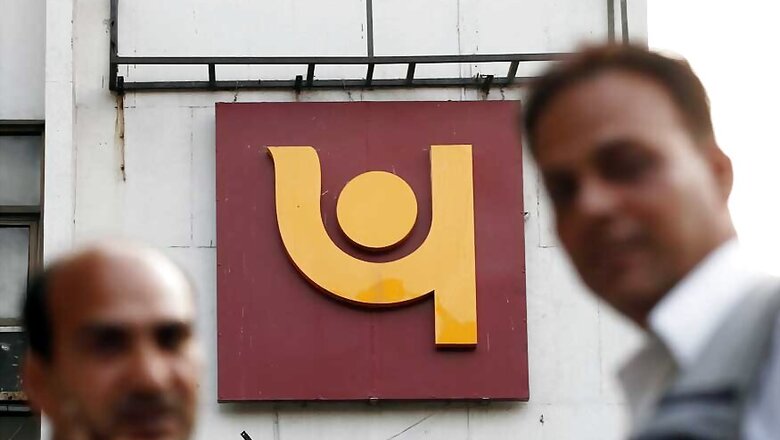
views
New Delhi: Moody's Investors Service has downgraded Punjab National Bank's rating citing impact of the recent USD 2 billion fraud on its capital as well as weak internal controls.
The outlook to the rating has been however retained as stable, reflecting Moody's expectation that the negative impact of the fraudulent transactions is largely known.
The agency downgraded PNB's foreign currency issuer rating by a notch to 'ba1', which is non-investment grade, from 'Baa3'- meaning below investment grade.
"Moody's Investors Service has downgraded the local and foreign currency deposit rating of Punjab National Bank (PNB) to Ba1/NP from Baa3/P-3. At the same time, Moody's has downgraded the bank's baseline credit assessment (BCA) and Adjusted BCA to 'b1' from 'ba3'," the global ratings agency said in a statement.
"The rating reflects the negative impact of the discovery of a number of fraudulent transactions on the bank's standalone profile, particularly its capital position. The rating downgrade also reflects the weak internal controls and processes of the bank, given that the fraudulent transactions were undetected for a number of years," the statement said.
In February, PNB disclosed it had discovered some fraudulent and unauthorised transactions amounting to Rs 11,390 crore (USD 1.7 billion). Based on the bank's subsequent announcements, PNB's total exposure to these transactions amounts to Rs 14,400 crore (USD 2.2 billion).
The bank's weak earnings profile on account of huge NPAs and the associated credit costs will limit PNB's ability to absorb the impact of the fraudulent transactions over the next 12-18 months, Moody's said.
Furthermore, provisions relating to the fraudulent exposures will largely offset the benefit the bank will receive from the government's capital infusion plan, it said.
Moody's said it expects that PNB will receive capital support from the government and it will be able to release some capital from the sale of its non-core assets, like real estate holdings, as well as a partial stake sale in its listed subsidiary, PNB Housing Finance Ltd.
Nevertheless, these sources will unlikely prove sufficient to restore the bank's capitalization to levels before the fraudulent transactions were discovered, Moody's said.
The fraudulent transactions represented 320 basis points of the bank's risk-weighted assets as of March 2018.
In the 2017-18 fiscal, after providing for 50 per cent of the fraudulent exposure, the bank reported a common equity tier 1 (CET1) ratio of 5.95 per cent compared to 8.05 per cent in the quarter ended December 2017.
The bank will provide for the remaining 50 per cent exposure in the next few quarters.
PNB had reported a net loss of Rs 13,417 in the January-March quarter of 2017-18, compared to Rs 262 crore in the year-ago period.
Moody's estimates that PNB will require external capital of about Rs 12,000-Rs 13,000 crore in 2018-19 to meet the minimum Basel III CET1 ratio of 8 per cent by March 2019, including a capital conservation buffer.
While the government has budgeted for infusing Rs 65,000 crore into India's 21 public sector banks, Moody's expects that the large capital shortfall will negatively impact PNB's ability to grow its loan book over the next year.
It said the systemic importance of PNB is evidenced by the role it plays in the corporate lending market, as well as in lending to large infrastructure projects; with the latter forming a priority for the Indian government.
"PNB's BCA could be upgraded if the capital infusion received from the Indian government, and or any actions taken by the management, improve the bank's capitalization to a level which is in line with other similarly-rated Indian public sector banks," Moody's said.
However, the US-based rating agency will downgrade PNB's BCA and ratings if the bank's capitalisation worsens beyond what it expects in this ratings action. Furthermore, any indication that government support to the bank has diminished will also lead to a ratings downgrade.
Headquartered in Delhi, PNB reported total assets of Rs 7.7 lakh crore as of March 2018.













Comments
0 comment